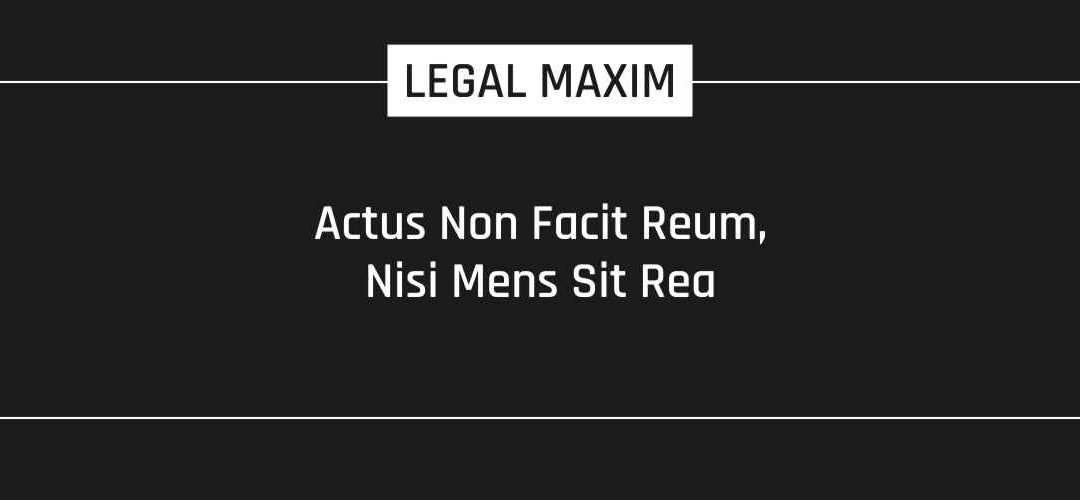Literal Meaning
An act does not make one guilty unless there is a criminal intent.
Origin
Latin
Explanation
According to this maxim, to be guilty of a crime under criminal law, two elements are considered which include a guilty act and a guilty state of mind. Without a guilty mind or a criminal intent, there is no crime. In general, the act itself does not make a man guilty, unless his intention is so. There must be a vicious will or criminal intention as well as an unlawful act. For committing a crime, the intention and the act both are taken to be constituents of the crime. Under Section 14 of the Indian Evidence Act, 1872 the facts which indicate the state of mind or intention are relevant facts in issue. Illustration
An accused who commits a motor vehicle accident leading to the death of a victim shall be charged for murder if the accused had the intention of killing i.e. his act and mind worked in unison to execute the crime. Otherwise, it would be considered as an accident or negligence on part of the accused. Also, in other words, a person who is suffering from a mental disorder cannot be said to have committed a crime as he does not know what he is doing.
Case Law
The Supreme Court in the State of Rajasthan vs Shera Ram held that “for committing a crime, the intention and act both are taken to be the constituents of the crime, actus non facit reum nisi mens sit rea. Every normal and sane human being is expected to possess some degree of reason to be responsible for his/her conduct and acts unless the contrary is proved. But a person of unsound mind or a person suffering from a mental disorder cannot be said to possess this basic norm of human behaviour.”
The Supreme Court in the Bapu @ Gajraj Singh vs the State of Rajasthan held that “Section 84 of Indian Penal Code, 1860 embodies the fundamental maxim of criminal law, i.e., actus non reum facit nisi mens sit rea" (an act does not constitute guilt unless done with a guilty intention). In order to constitute an offence, the intent and act must concur; but in the case of insane persons, no culpability is fastened on them as they have no free will.
In R.Balakrishna Pillai vs the State Of Kerala, it was observed that “Criminal guilt would attach to a man for violations of criminal law. However, the rule is not absolute and is subject to limitations indicated in the maxim which signifies that there can be no crime without a guilty mind. To make a person criminally accountable, it must be proved that an act, which is forbidden by law, has been caused by his conduct, and that the conduct was accompanied by a legally blameworthy attitude of mind. Thus, there are two components of every crime, a physical element, and a mental element, usually called actus reus and mens rea respectively.”

THANKS ARTICLE IS INFORMATIVE
Thank you a very helpful
I am a law student and this article helped me alot so thank you so much
Beautifully written…. Very helpful 👍
Very informative trying to use this for a personal research paper. Who would I give credit to for writing this article.